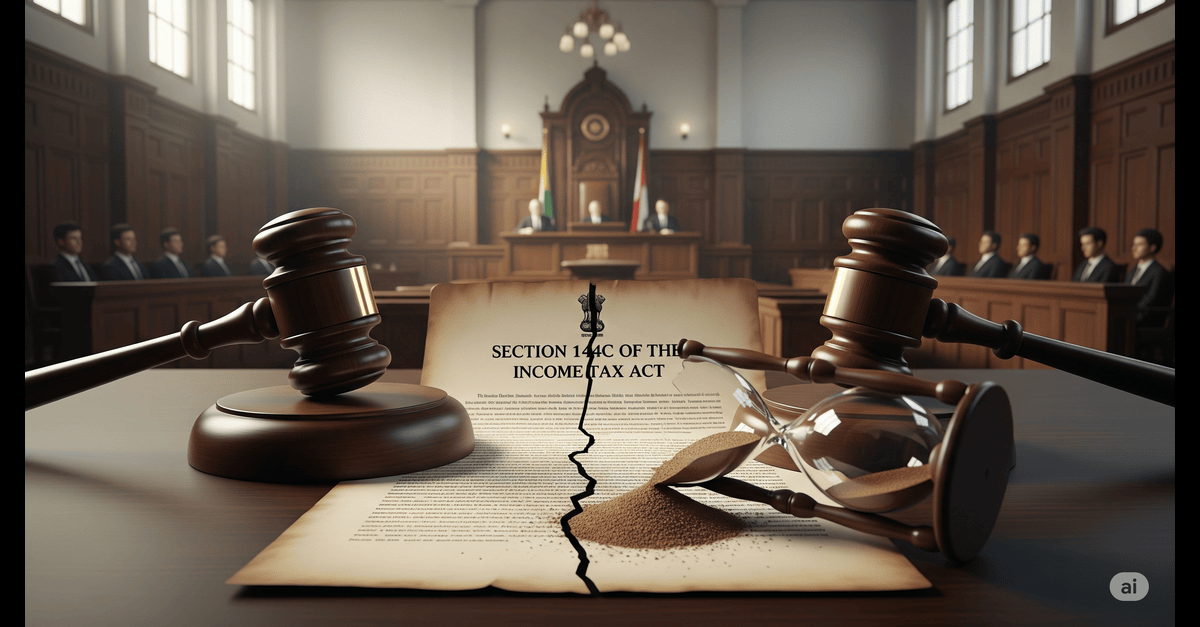Introduction
The thin line between the powers granted for revenue collection and the protection granted to the taxpayer necessitates compliance with statutory timelines within tax assessment procedures. Corporate tax assessment and revenue collection within Section 144C transfer pricing and Section 153 limitation periods raise major procedural concerns for both the revenue authorities and the corporate assesses. The recent judicial scrutiny of these intersecting statutory provisions has given rise to notable interpretative concerns around the assessment powers and the temporal limits of exercising them.
Background
The case Assistant Commissioner of Income Tax v. Shelf Drilling Ron Tappmeyer Ltd., seeks to highlight the legal controversies concerning the timelines for assessments under the Income Tax Act.
The main issue in this particular case centred on the question of whether the time period provided under Section 144C for the issuance of draft assessment orders should be treated independently or should be assimilated within the overall limitation period prescribed under Section 153 for completing assessments.
The position of the revenue department was that Section 144C is a standalone code of procedure, separate from Section 153 restrictions, whose issuance of draft orders within statutory periods meets statutory obligations irrespective of final orders’ timing. The Respondents, on the other hand, argued that all procedures to assess, including specialised transfer pricing procedures, must be finalised within Section 153 timeframes in order to be procedurally valid and to grant constitutional protection against indefinite extension of assessment.
Key Points
- The principle of Harmonious Construction: In this case, Justice Sharma alone held that courts must interpret contradictory provisions of a statute to achieve legislative intent rather than creating incompatible conflicts between various sections of the same Act or enactment.
- Strict Construction of Revenue Statutes: However, contrary to Justice Sharma’s opinion, Justice Nagarathna has said that tax-collecting powers should have a narrow judicial interpretation to protect taxpayers’ rights from arbitrary government actions. The requirement of an extended assessment period, as submitted in this case, needs precise and formal legislative authorisation rather than implied extensions through complexity in the procedures as held in this case.
- Requirements of Procedural Fairness: It was said in this case that assessment proceedings must provide for an adequate opportunity for the taxpayer’s response while maintaining a reasonable timeframe. It was held that unlimited extension possibilities through multi-stage procedures could be a violation of natural justice principles.
Recent Developments
The Judicial Bench, consisting of Justice BV Nagarathna and Justice SC Sharma, delivered a contradictory judgment with regard to limitation periods under Section 144C, giving rise to an unprecedented interpretative uncertainty within Supreme Court judgments.
Justice Nagarathna, in his analysis, concluded that Section 153’s 12-month limitation governs all the assessment procedures under the Act, including specialised transfer pricing under Section 144C, making extended procedures beyond this limitation period statutory invalid.
Her reasoning emphasised how section 144C procedures must integrate within the given timeframe rather than creating an independent time boundary. Justice BV Nagarathna’s interpretation and conclusion prioritise the protection of taxpayers’ rights through strict compliance with the established limitation for assessment deadlines under the Act.
However, Justice Sharma, in his analysis, reached at a different and opposing conclusion, holding that Section 144C establishes an independent procedural timeline that is intended to operate alongside Section 153 rather than within the limitations of Section 153. His conclusion was in support of the revenue department’s submissions that specialised transfer pricing procedures require an additional timeframe beyond what is traditionally set out as conventional assessment periods due to their inherent complexity.
Additionally, the Supreme Court ordered this case as a referral to a larger constitutional bench, acknowledging that the bench’s disagreement creates a legal and precedential uncertainty requiring proper institutional guidance.
Conclusion
The disagreement between the two Justices as to the limitation of Section 144C shows the complexity inherent in the modern tax administration process. This dispute, guided by the principles of statutory construction and constitutional validity, will determine whether specialised tax procedures can extend beyond the limitation period provided in the Act without explicit legislative authorisation. The Supreme Court’s pending decision in this case will impact corporate tax compliance strategies and revenue collection procedures, setting a precedent regarding the scope of the limitation period in assessment powers under the modern tax administration framework.
PRIME LEGAL is a full-service law firm that has won a National Award and has more than 20 years of experience in an array of sectors and practice areas. Prime Legal falls into the category of best law firm, best lawyer, best family lawyer, best divorce lawyer, best divorce law firm, best criminal lawyer, best criminal law firm, best consumer lawyer, best civil lawyer.
WRITTEN BY YANA S JACOB


